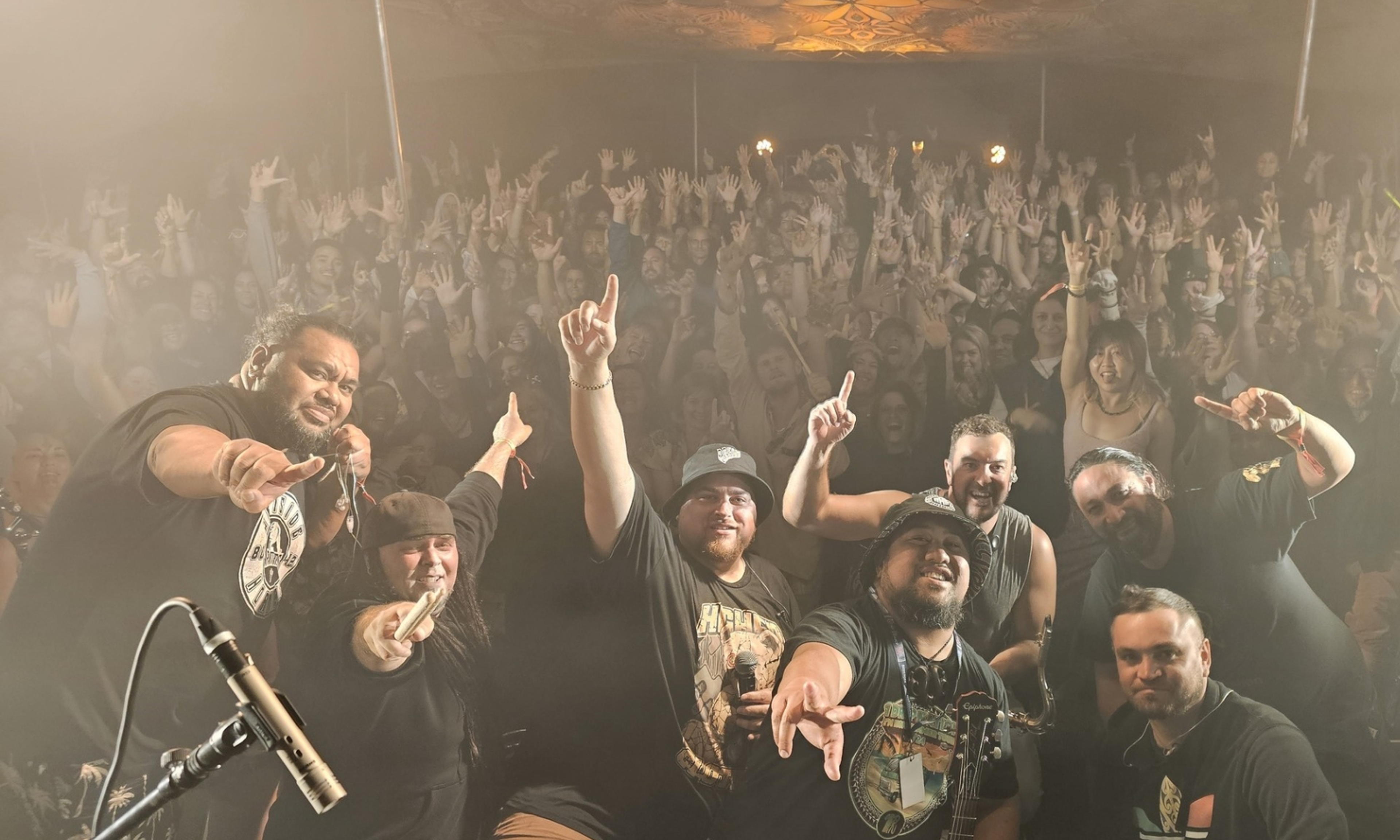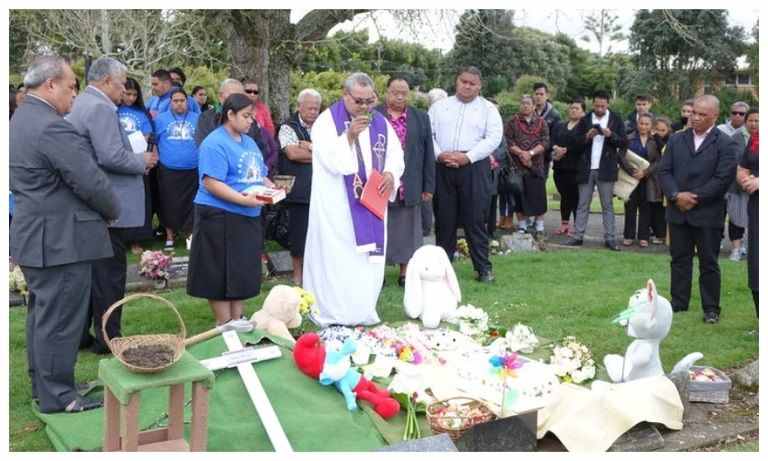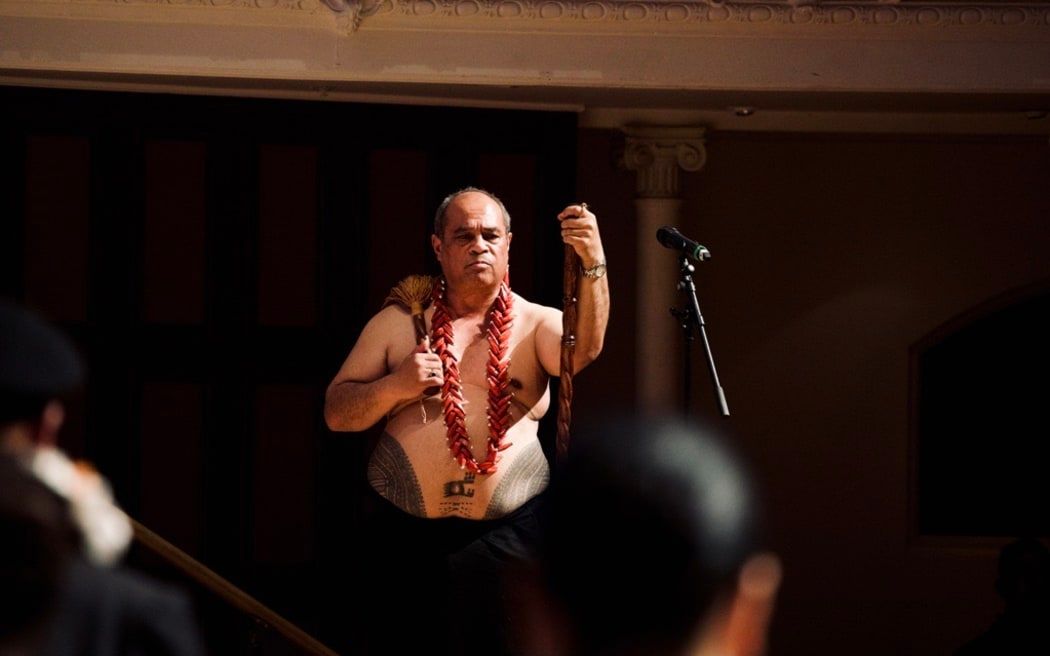

Aupito Tofae Su'a William Sio outside his electorate office in the Māngere Town Centre.
Photo/PMN News/Justin Latif
Called to serve: Aupito William Sio reflects on 15 years in Parliament
After a decade and a half as an MP, Aupito William Sio looks back on the trials, tribulations and triumphs from his time in Parliament.



Ōtautahi's 1 Drop Nation celebrates brotherhood and legacy in new music




Lineup for Miss Pacific almost complete after Fiji, PNG crown queens

Ōtautahi's 1 Drop Nation celebrates brotherhood and legacy in new music


As we walk through the crowded Māngere Town Centre on a bright Saturday morning, Aupito William Sio warmly greets well-wishers with one hand, while carrying a freshly brewed mochaccino from the markets in the other.
Despite his party’s flagging poll numbers, there’s no sign his popularity is dimming in an electorate he has consistently won by around 15,000 votes.
In fact the only time his majority was less than 10,000 came in his first campaign for the Māngere seat when he was up against his old mate, Taito Philip Field who had left Labour a year earlier to run as an independent in 2008.
While some may assume he’s had an easy job holding what is known as a traditionally safe seat, Aupito says securing the role was never a sure thing.
“Taito had such a huge profile as the first Pacific person to be an MP.”
Despite helping Taito become an MP in the 1990s, Aupito then replaced him as Labour’s chosen candidate for Māngere, after Field was forced to resign over conflict of interest allegations that he would eventually be convicted for.
“We were brothers in politics and I was basically his right hand person [during Taito’s time in Labour]," Aupito says.
"So it was really emotional but also kind of awkward at the same time. He was very critical and challenging of our team and he put a lot of pressure on members to go with him and it split up our local Labour electorate committee.”
While Aupito prevailed, the 2008 election spelled the end for Helen Clark’s government and began what would be nine years in opposition, which as he told Radio New Zealand, was a blessing in disguise as it was “the best time of learning.”

A priest blesses the grave of the baby who was found abandoned in a reserve in Māngere. Photo/RNZ/ Sally Murphy
A motivating factor for Aupito's entry into politics is to see areas like Māngere and Ōtara having Pacific representation in Parliament.
“I was born in 1960, two years before Samoa became independent and our family were very much involved in the early days of Samoa’s independence movement. My grandfather hoped I would become prime minister of Samoa and so there's always been that belief that there’s no greater calling than to serve your community in public office.”
Another key part to Aupito’s success in that first electorate race and since, has been his strong ties with many Pacific church communities. But when Aupito voted against a bill legalising same-sex marriage, citing Māngere locals' views on the matter, he drew much criticism, particularly from many within his own party.
“I voted against it, knowing it was going to carry anyway, but I tried to use the opportunity to educate both sides.
“For my colleagues I was saying don’t just condemn our community because we’re voting against it. And for our people I tried to make the point that you can’t condemn our children who are gay.”
However he admits this position may have hurt his future chances of promotion within the party.
“I think it did [affect my standing in party]. But you make use of the opportunities given to you because you can’t go around in that place thinking so and so hates you - you just keep going and you make sure you keep your word.”
However when he voted in favour of decriminalising abortion, he faced backlash of another kind from religious right.
“I made that decision based on the situation here in Māngere, where a baby was left in a park rubbish bin by the mother. I got so many hate emails but I said to people, you may not support abortion but we’re moving it from the criminal to the health realm because look at what’s happened in our community.”
Once Labour was elected in 2017, Aupito as the Minister For Pacific Peoples, would go on to secure around $734 million over successive Pacific Budget packages. He was also able to establish a strategic wins like new language, wellbeing and housing strategies and convince Prime Minister Jacinda Ardern to make a formal apology for the dawn raids of the 1970s and 80s.
But he says these achievements will also be tempered by the knowledge how much further he would like to see these policies progressed.
"The dawn raids apology was quite an emotional time - and certainly one of the highlights. I thought the end result was we lifted the pride in our community and we highlighted for those that didn’t know what happened, the trauma and how deeply painful it was.
“But the immigration part is what really disappoints me - and that still lies with the immigration minister.
“We’ve made some preliminary decisions in cabinet - but it has to be followed through and that’s work for the next generation.”

Aupito Tofae Su'a William Sio was instrumental in events to mark the government's Dawn Raids Apology in 2021. Photo/RNZ /Marika Khabazi
Post parliament, the next steps are less certain, but he says he’s taking the advice of one of his old mentors in the Helen Clark government which was: “breath in and have a plan for when you want to exit".
“As I’m asthmatic one of the first things I’m learning is how to breath properly as I didn’t realise that I needed to breath from my diaphragm. And I’m also going to spend some more time with my family so they get used to me being around.”
He says given the out-pouring of gratitude he's received since he announced his retirement - he leaves knowing he can be satisfied his contribution has made a difference to people's lives.
"One thing my elders taught me, was that the greatest contribution I could make was to serve the poor, those in need and the elderly, and when you leave the greatest satisfaction is when they applaud you and say thank you - and so I'm proud of that."